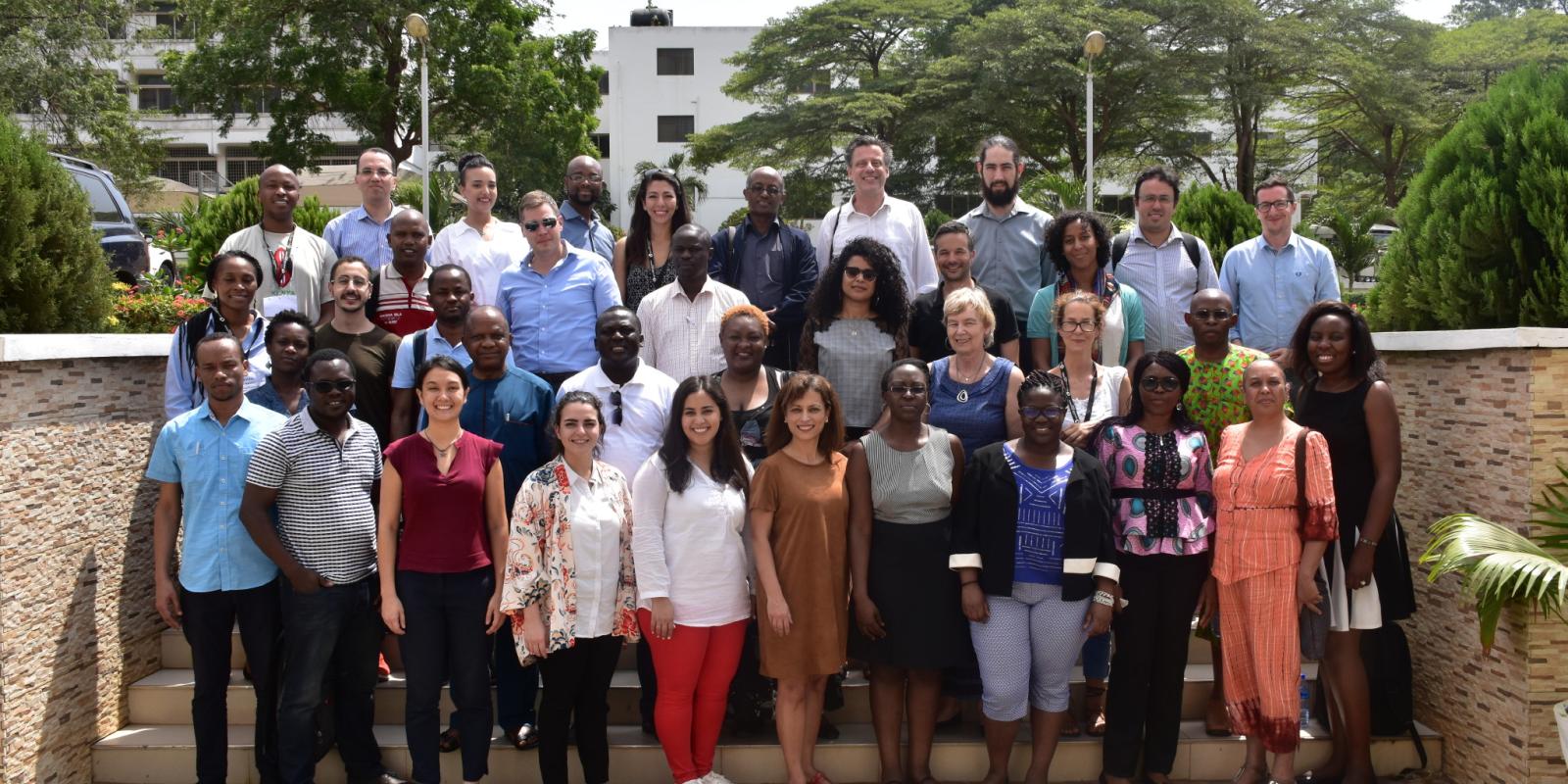
A2K4D Travels to Ghana for Open AIR Transition Workshop
The Access to Knowledge for Development Center (A2K4D) attended an Open African Innovation Research (Open AIR) workshop from February 8 to 10.
Researchers gathered in Accra, Ghana with the primary goal of sharing insights and deliberating the future direction of Open AIR studies. The event aimed to integrate new members into the network’s structure and activities as well as empower and engage the New & Emerging Researchers Group (NERGs).
A2K4D is Open AIR’s North African hub, with other fulcrums, so to speak, lying at the University of Ottawa in Canada, University of Cape Town in South Africa, Strathmore University in Kenya and the Nigerian Institute of Advanced Legal Studies in Nigeria.
The latest workshop brought together a unique collaborative network of researchers – from 14 African countries and Canada – to work together on insights that ease tensions between intellectual property and access to knowledge.
Guided by the convention’s overarching themes of collaborative research and active societal inclusion, A2K4D is providing leading research on metrics, laws and policies. The objective of the center’s work is to assess the variety of innovation activities – ones that are not typically captured by conventional measurements – taking place in Africa. A2K4D is conducting two studies as part of the academic network.
The first of which – entitled “Power Relations and Knowledge Governance Systems at High Technology Hubs: The Case of Egypt” – examines the knowledge-governance systems and existing power relations at different types of technological organizations in Egypt. It also assesses the extent to which these systems facilitate or hinder startups’ abilities to scale.
A2K4D’s second case study, on the other hand, is entitled “The Maker Movement Across North Africa” and aims to map and explore the maker-movement phenomenon in the region – focusing specifically on Egypt, but also highlighting stories from Morocco and Tunisia.
Through the two projects, A2K4D strives to stimulate more informed outlooks for the region at large. The center is in many ways domesticating Open AIR’s collaborative platform along the way, perhaps in recognition that continental and international progress is best reached through initiative taking on a more local level.
